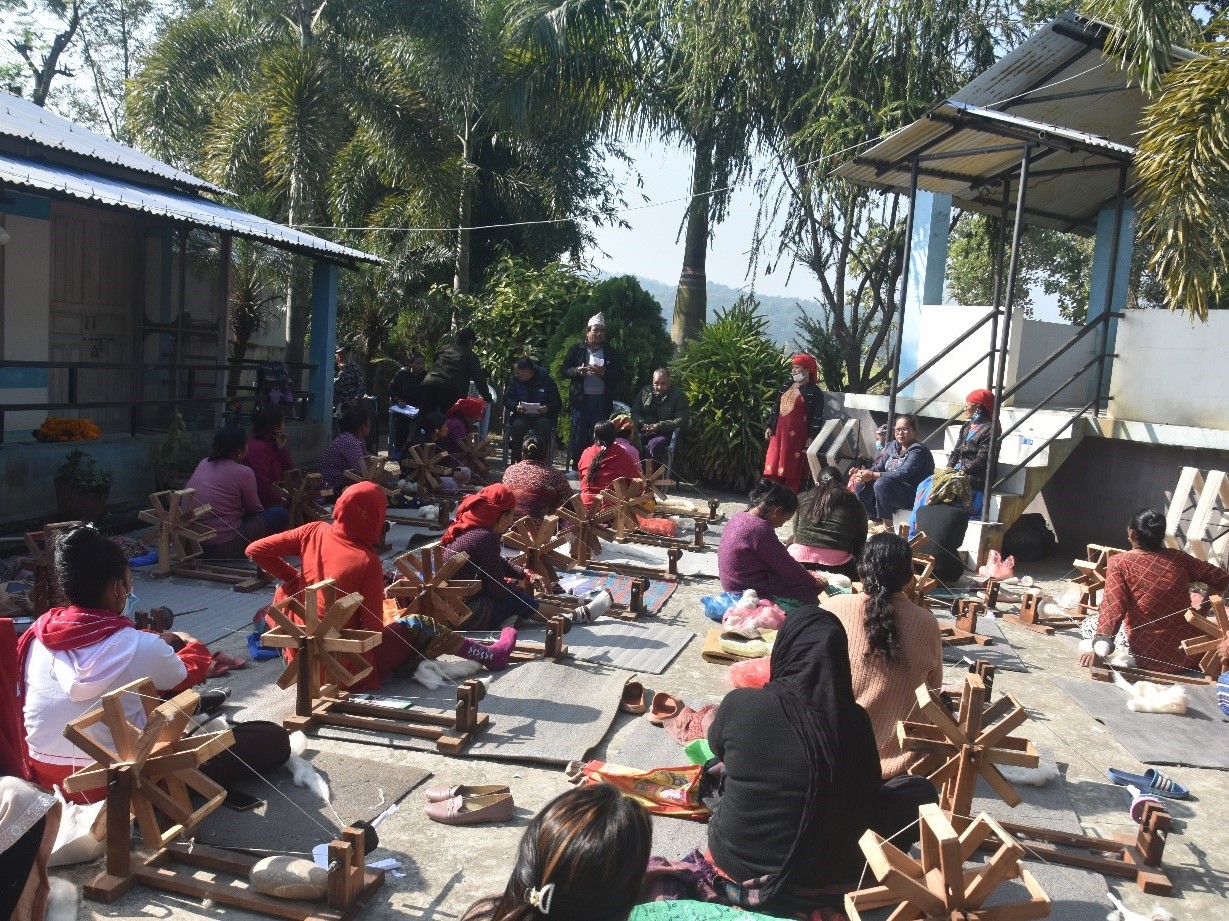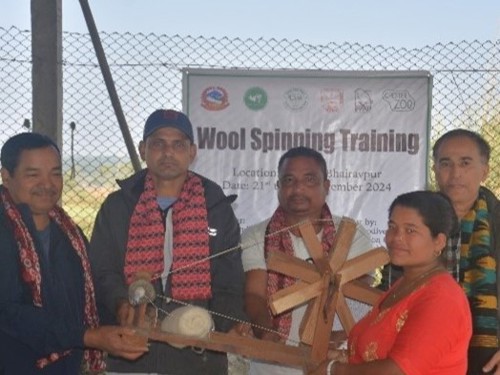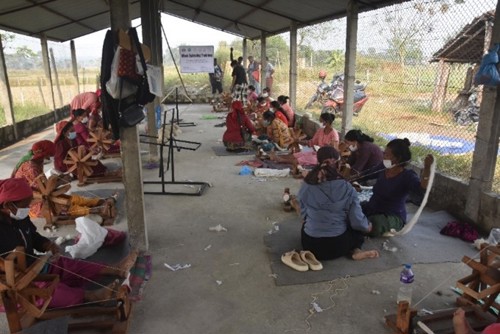Spinning opportunities in rural communities

Group wool spinning training at Bhairavpur, Nepal. Credit - Manoj Ghimire, National Trust for Nature Conservation.
Spinning change: Wool spinning fosters human-large carnivore coexistence
On an unnamed mud street, lined with mud houses on either side, in the Panchpandav area of the Madi Valley and surrounded by the Chitwan National Park, the rhythmic sounds of spinning wheels arise from different homes, gently punctuating the everyday sounds of a quaint village.
But these sounds are new, as is this settlement of houses. Around ten years ago, nearly fifty Dalit (an underprivileged caste group among Hindus) families were moved out of the national park and resettled here by the local municipality, who are now overseen by the Panchpandav Buffer Zone User Group Committee (BZUGC). Landless, working as farm hands and cattle herders, these families continue their dependence on forests as a lifeline – for fuelwood, for fodder and grazing their cattle, and for wild fruits and vegetables – all essential for a simple livelihood. Over the years, these families were expected to migrate through the land but without many means and much opportunity, they remain on a strip of land sandwiched between Panchpandav village and the forest.
In 2024, the National Trust for Nature Conservation (NTNC), a project partner of the ‘Living with large carnivores’ project leading the implementation in Nepal, proposed that the women of these households receive training in wool-spinning. This is because wool spinning is an activity which they can carry out from their homes without compromising their attention needed for other household chores, such as venturing into the forest for fuelwood collection and gathering wild fruit and vegetables. Wool spinning would then not only provide them with supplementary income for themselves and their households - increasing their financial resilience - but also reduce the chances of these women having negative interactions with wild large carnivores.

To do this, the project brought on board Ms. Buddhimaya Ghale, the founder of BM Hastakala Prashichyan Udhyog (BM Handicraft Training Industry). Ms Ghale had received similar training in 2005 and started selling her own handicrafts and products in the market. In 2016, she founded and registered the BM Hastakala Prashichyan Udhyog as a cottage industry in Kalika Municipality, Jutapani village in the Bagmati province of Nepal, and she opened her own handicrafts store in Chitwan. Ms Ghale, who has also worked extensively increasing awareness and prevention of human trafficking in Nepal and India, is keenly aware of the need for, and importance of, empowering women, especially those from marginalised sections of local communities.
Ms Ghale and two of her trainers, also women, conducted training workshops for ten days each in November and December 2024. A total of 50 women beneficiaries trained in wool-spinning and received a spinning wheel each. An agreement has been struck where Ms Ghale will provide raw material to the spinsters and buy spun wool from them at the rate of 180 Nepali Rupees (£0.94) per kg of wool. As the quality of finished product will improve with experience, the women taking up spinning shall receive befitting remuneration for their work, and some could go on to train in other handicrafts making if they chose to.

The project anticipates that with an alternative means for livelihood, these women and their families will be less dependent on the forest and thus the likelihood of negative interactions with large carnivores is reduced. The increased income will also provide an opportunity for these women to better their lives further.
When I last visited these set of households earlier this year, I was drawn by the sounds of spinning, to the small courtyard of a house where an old lady sat spinning her wheel. She said she was content with the 700 Nepali Rupees (£3.67) she received just a week prior for wool-spinning. She expects to earn anywhere between £20-30 a month as extra, spinning bales of wool in her leisure time. She told me it was just her and her husband who lived there, and this additional income allows them to buy a few more things from the market instead of having to venture in the forest at their age. She isn’t afraid for her own and her husband’s lives as much now, because she has little need to go to the forest anymore.
Written by Disha Sharma. For more information on this Darwin Initiative Main project 30-011, led by North of England Zoological Society (Chester Zoo), please click here.

 Back
Back